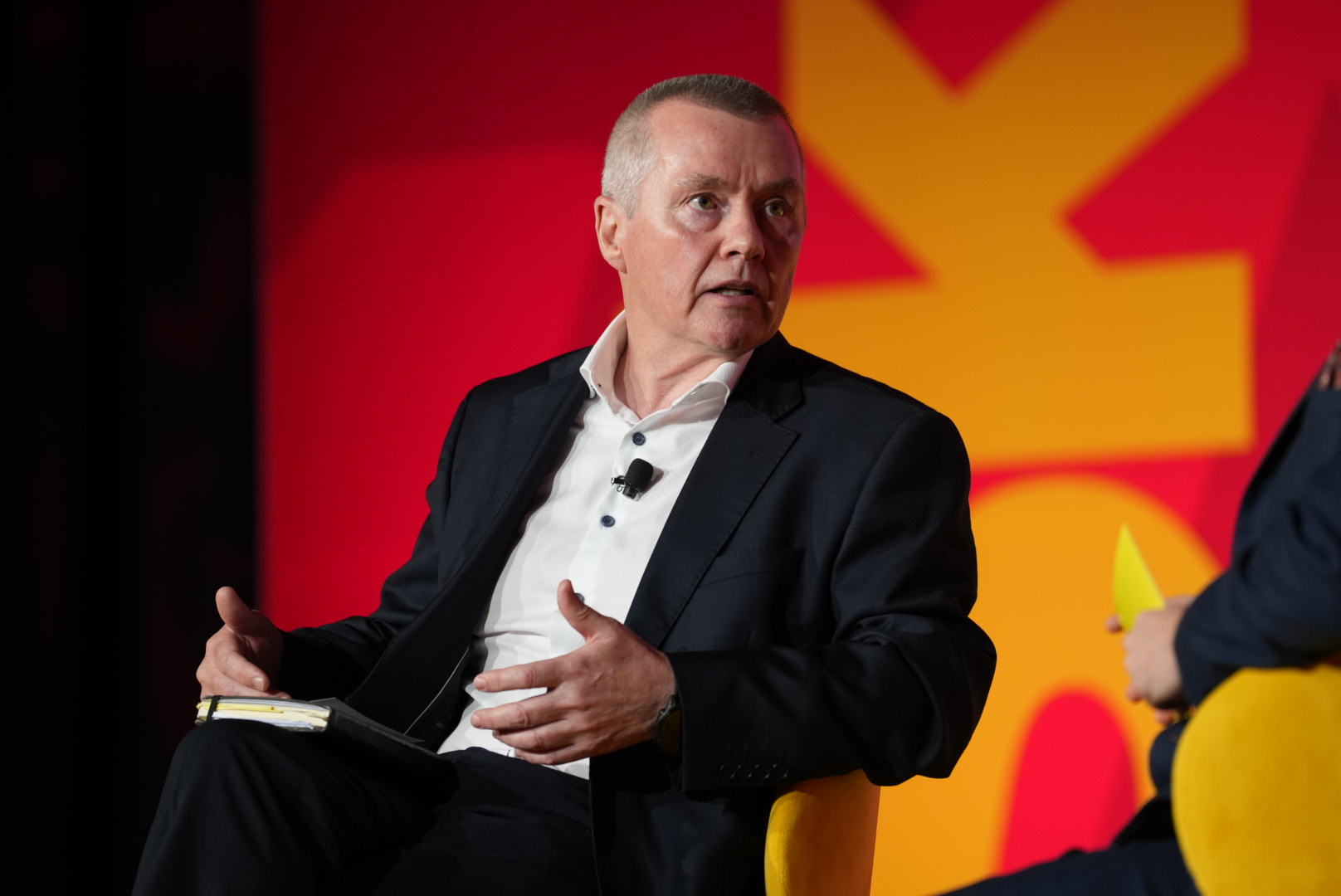Skift Take
This weekâs Skift Aviation Forum was full of intriguing discussions about the current state of the global airline industry and where itâs headed.
Leaders from across the aviation sector gathered in Dallas this week at the Skift Aviation Forum to share their thoughts on industry trends and developments. Here are some key themes that emerged from the discussions:
1. American and JetBlue Appear Eager to Rekindle Their Romance
Their joint venture didnât survive an attack by the Justice Department, which successfully sued to dismantle it on antitrust grounds. But JetBlue President Marty St. George made clear that he still wants a partnership to bolster the airlineâs network, and that the future partner could be ⦠yes, American.
Americanâs Robert Isom hinted at the idea as well, with St. George mentioning the possibility of a restructured version of the dismantled joint venture â maybe along the lines of how American is currently working with Alaska Airlines on the U.S. West Coast. Â
2. Trump Is Back, and His New Administration Could Bring Both Opportunities and Challenges for Airlines
Several speakers addressed the potential implications of the U.S. presidential election earlier this month. IATAâs Willie Walsh was most upbeat, recalling that Trumpâs first administration was generally friendly toward airlines. He specifically mentioned Washingtonâs Payroll Support Program (PSP), which rescued U.S. carriers during the Covid crisis.
Isom mentioned this too. On the other hand, Sara Nelson, who heads the largest U.S. flight attendant union, expressed caution about what the new administration might mean for the U.S. labor movement more broadly.
One possible change with Trumpâs return is a more relaxed approach to antitrust enforcement, which could make airline mergers and joint ventures more likely.
More worryingly for carriers, tariffs could introduce new uncertainties, given air travelâs close association with international trade. Furthermore, a trade war between the U.S. and Europe could make buying Boeing and Airbus airplanes significantly more expensive.
Will the new administration remove federal incentives to produce more sustainable aviation fuel? Might a more Russia-friendly foreign policy lead to the reopening of critical Russian airspace?Â
3. Southwest Is Undergoing Big Changes
CEO Bob Jordan ran through some of the highlights of Southwestâs new turnaround plan, which will âtransform the airline without leaving our values behind.â Itâs adding premium seats, offering assigned seating, codesharing with Icelandair, revamping its Vacations product, scheduling overnight red-eye flights, and slicing time from its aircraft turns.
And, no, this was not a reaction to Elliott, the activist investment fund that demanded Jordanâs departure. Everything in the plan, Jordan insists, was under research and development âlong before Elliott ever showed up.â However, Elliottâs actions did result in a boardroom shakeup.
Separately, pressed by interviewer Brian Sumers of the Airline Observer, Jordan seemed to hint that Southwest might soon become a member of IATA, the industryâs trade association. IATA membership, among other benefits, enables airlines to cooperate more efficiently with each other, and with third parties like travel agencies.
âThereâs nothing thatâs been decided,â Jordan said. âBut itâs something weâre taking a look at.â
4. ‘It’s Never Been Harder to Operate an Airline’
So said Americanâs Robert Isom, citing for example, difficulties with air-traffic control. It now takes 30 minutes longer to fly from Chicago to New York, he said, than it did 20 years ago. In addition, supply chain problems persist, having never fully recovered from where things were in 2019.
Declining availability of aviation maintenance professionals, Isom added, is becoming a significant industry problem. American and others say theyâre effectively managing such challenges with help from technology.
However, the carrierâs digital and IT chief Ganesh Jayaram â also speaking at the Forum â described some key risks associated with technology. What most keeps him from sleeping at night? The risk of a cyberattack.
Separately, Joe Mohan, chief commercial officer of Abra, described the immense difficulties of operating an airline in Latin America. Brazil, he said, is especially tough with exorbitant fuel taxes and consumer protection laws that result in airlines constantly getting sued.
5. No, Ultra-Low-Cost Carriers Aren’t a Dying Breed
The Wall Street Journal reports that Spirit is preparing to file for bankruptcy. And several speakers including Southwestâs Jordan cited multiple reasons why running a profitable low-cost airline has become more difficult in the post-pandemic era.
But as Skiftâs Ashab Rizvi presented to the Forum audience, ULCCs like Frontier have started showing some profit margin improvement. Sun Countryâs earnings have been stellar throughout, as its CEO Jude Bricker made clear.
Allegiantâs commercial chief Drew Wells, meanwhile, insisted that his airline is as different from other ULCCs as it is from legacy carriers. Both Bricker and Wells sound bullish about the future. Bricker, for his part, says Sun Countryâs existing fleet can support healthy growth next year â no need to buy any additional planes. Wells cited opportunities in Mexico and the Caribbean.

